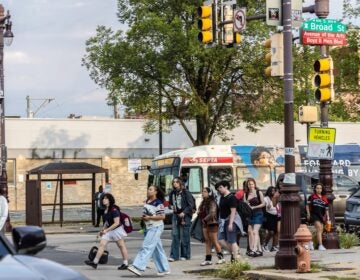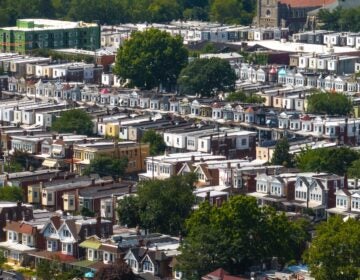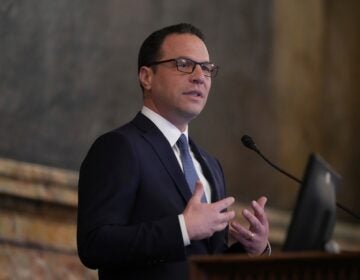‘It has to end’: Philly City Council, Mayor Parker call on state lawmakers to fund SEPTA
As SEPTA begins its first week with a reduced schedule, Philadelphia lawmakers are calling for new funding to reverse the cuts.
Listen 0:54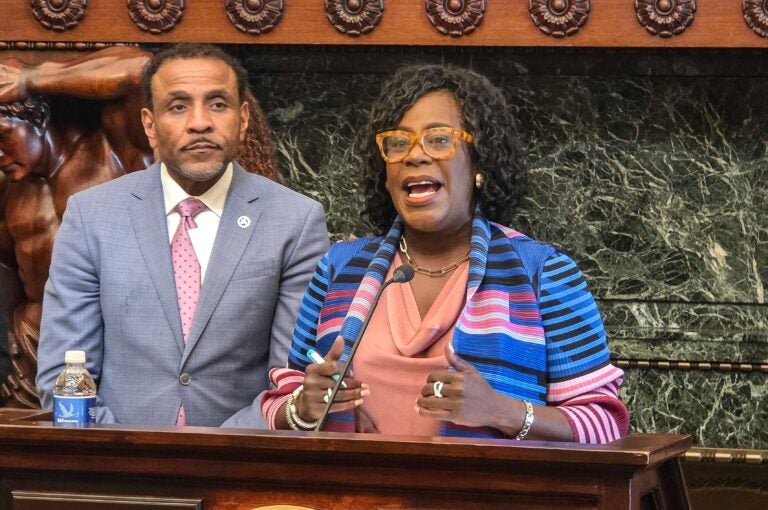
Mayor Parker and Schools Superintendent Tony Watlington speak at City Hall, Aug. 25, 2025. (Tom MacDonald/WHYY)
From Philly and the Pa. suburbs to South Jersey and Delaware, what would you like WHYY News to cover? Let us know!
Philadelphia lawmakers are urging the Pennsylvania General Assembly in Harrisburg to get a deal done to fund SEPTA and bring an end to service cuts that are now in effect.
Thousands of riders are now forced to find new ways to get around the city after a 20% cut in transit service resulted in the elimination of 32 bus routes and substantial reductions in rail services this week.
“The longer that we do not have a deal, the more we’re going to see a significant negative impact on those individuals who are severely impacted by the cut,” said City Council President Kenyatta Johnson.
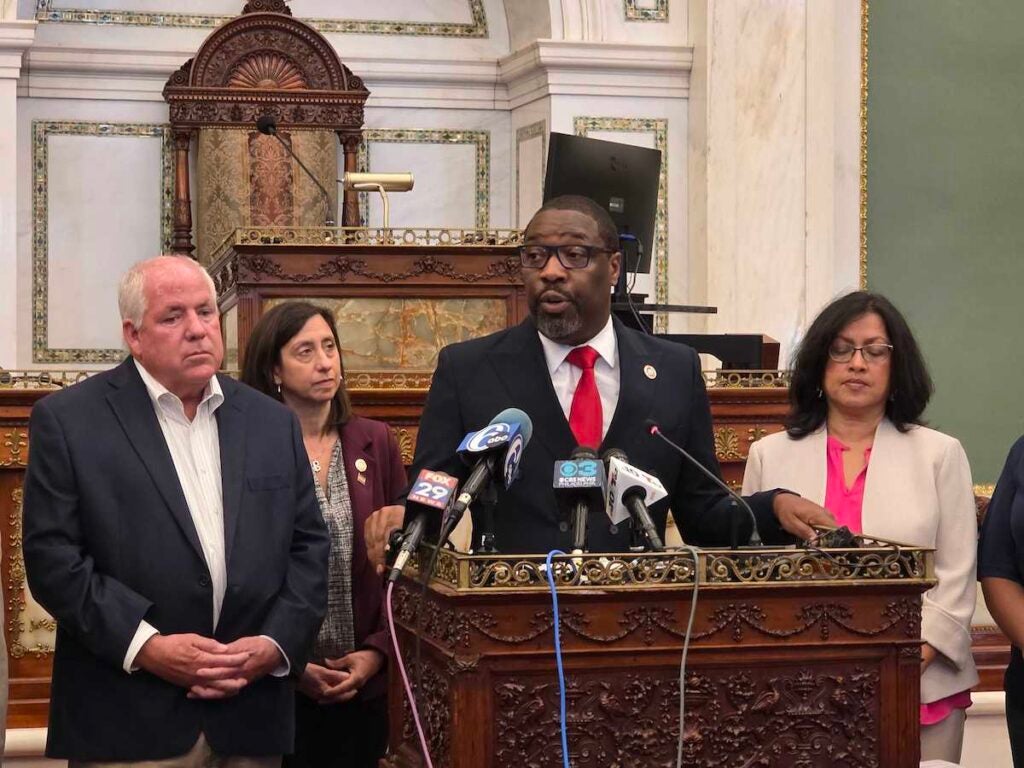
Mayor Cherelle Parker said the city is doing its part to support SEPTA, with nearly $800 million in operating and capital funds approved this year in the city’s five-year budget plan for the transit agency.
“Reliable and safe public transportation is crucial for our city and our commonwealth’s economic future,” Parker said. “You rest assured that if there was a way the city of Philadelphia could have addressed this, it would be done, but we can’t do this alone.”
The mayor said it’s a priority to make sure students get to class safely and on time.
The city is still working on a plan to make it easier for students, but officials weren’t ready to elaborate on those plans. “What will it look like? We can’t give you any details right now. We’re still working through that, but we will have a public announcement soon,” Parker said.
On Monday’s first day of school, district Superintendent Dr. Tony Watlington said preliminary opening day attendance numbers at some locations were more than 20% below the normal rate for the start of school.
“I was watching these children today with delays trying to get to school. Worried parents that have to go to work but get their kids to school. It’s horrible,” said Councilmember Mike Driscoll, who leads City Council’s transportation committee. “It has to end and has to end now.”
‘Keep pushing’
The mayor recalled getting budgets done during her time in Harrisburg, where she represented Northwest Philadelphia as a state representative from 2005 to 2015. She said she doesn’t understand why the legislature isn’t working to solve the transit funding crisis and the entire budget problem that has kept a spending compromise out of reach for months.
It’s time to stop “letting politics get in the way” of a settlement and come to a deal, she said.
Parker said she’s optimistic that both sides can form partnerships to get a deal done and encouraged lawmakers to “keep pushing.”
In a joint statement, Johnson and Driscoll said a short-term budget “patch” is not the solution SEPTA needs.
“Without a long-term, sustainable funding solution, the very foundation of our economy, our schools, and our communities is at risk,” they said. “Our workforce, the engine that drives the regional economy, depends on reliable public transit to get to jobs across Philadelphia, the suburbs, and beyond. When SEPTA falters, the ripple effect hits every household, every business, and every neighborhood.”
The cuts could also mean students and their parents will spend more time traveling to and from school and work, and less time together at home.
“Longer and more crowded commutes that leave less time for parents to spend with their kids is also an outcome of where we are right now,” said Councilmember Jamie Gauthier. “Young people will have to get up earlier to get to school and they will get home later, which means later nights and less sleep.”
Council members said it’s time for a special session to finish budget negotiations and make funding available for mass transit.
“City Councilmembers urge the leadership of both the Pennsylvania House and Senate to stay in Harrisburg for as long as it takes to create a new Fiscal Year 2026 Commonwealth of Pennsylvania operating budget that funds state operations and mass transit,” Johnson and Driscoll said in their statement.
Pennsylvania’s budget was due to be approved at the end of June, but it’s become more regular for lawmakers to miss that deadline. The General Assembly last met Aug. 12 as Republicans in the Senate have been in a standoff with Democrats in the House over a funding fix for mass transit.
They are not scheduled to return to session until after the Labor Day holiday, meaning a second round of SEPTA cuts and fare increases are expected to take effect.

Get daily updates from WHYY News!
WHYY is your source for fact-based, in-depth journalism and information. As a nonprofit organization, we rely on financial support from readers like you. Please give today.




